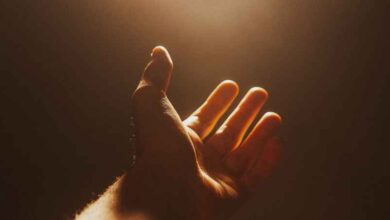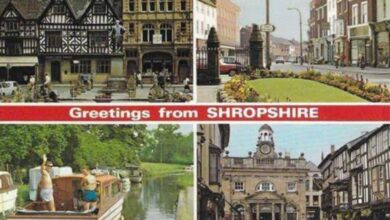How Trigger Objects Are Used To Help Detect A Ghostly Presence

By strategically placing these trigger objects in a haunted location, paranormal investigators hope to capture physical evidence of a spirit’s presence through movement or manipulation of the object. Investigators often call out to the spirits, encouraging them to move or touch the object as a way of communicating. This evidence is often captured on video or with the aid of other equipment like motion sensors.
The use of trigger objects aligns closely with what is often referred to as the “familiarisation theory” or the “Singapore theory,” which claims that introducing familiar or emotionally significant objects might increase paranormal activity or interactions. However, familiarisation theory also includes the use of music, sound, scents, or even language rather than just trigger objects.
Investigators often select a trigger object that is appropriate to the location of the spirit that is said to haunt. Objects such as glasses, books, or even articles of clothing can be used in settings associated with specific individuals. For example, if a former homeowner was known to be an avid reader, a book from their collection might be used in an attempt to draw them out.
Perhaps the most commonly used trigger objects are toys, especially in locations where children’s spirits are believed to linger. Dolls, balls, and games from the era in which the children lived are placed in hopes of eliciting a response. Investigators also use purpose-made stuffed toys equipped with built-in REM-Pods or EMF (Electromagnetic Field) meters. Alternatively, ghost hunters often place equipment like EMF meters, environmental sensors, or motion detectors around trigger objects.
These toys serve dual purposes, acting as an emotional trigger object as well as providing audio and visual alerts to a potential spirit presence. Using devices in this way makes them much more approachable than traditional ghost hunting devices alone. The in-built REM-Pods and EMF meters, which detect changes in the electromagnetic fields, can provide immediate feedback if something is influencing their immediate environment.
Everyday objects from the relevant time period can also serve as effective trigger objects. These could include items like vintage radios, tools, coins, or any household items that might stir memories or familiarity.
One popular yet often debated trigger object is the flashing cat ball. These small, lightweight balls are originally designed as toys for pets, but they’ve found a niche in ghost hunting due to their sensitivity to movement and their ability to light up when touched. This makes it easy to detect even slight interactions, as the ball not only moves but also visually signals its movement through flashing. However, since these balls are not specifically designed for paranormal investigations, they are prone to false triggers.
The chosen trigger object is placed in a strategic location during the investigation. This could be somewhere where paranormal activity has been previously reported or where investigators have already had hints at some kind of spirit communication. In some cases, the exact position of a trigger object is marked on the surface where it rests. This can be done using a simple marker or tape. This method provides a clear visual reference to determine if and how far an object has moved.
When placing an object, you should be sure to control the environment as much as possible by eliminating anything that could cause movement of the object, such as draughts, vibrations from traffic, or other natural forces. This can involve closing windows and doors, monitoring weather conditions, and even using vibration sensors to detect any unnoticed tremors or movements that could affect the objects. Attempts should also be made to keep unauthorised people out of the area during the experiment.
Of course, there’s one thing we can’t be sure of here. Assuming ghosts exist, we can’t know for sure whether they can actually see objects from our time period. Many paranormal investigators believe that spirits continue their routines as if they were still alive, seemingly unaware of their own deaths or changes in the world around them. This belief would suggest a disconnect from our reality, meaning that spirits might not perceive modern changes or presences, including investigators and their equipment.
However, many paranormal investigators believe that while present-day surroundings might be imperceptible to some spirits, others might be more aware and able to interact with the current environment, including trigger objects. Others theorise that even if some spirits do not fully perceive the modern world, certain stimuli, like personal items or familiar objects, might bridge this gap.
Investigators then either observe the object quietly for a period of time or actively engage with any spirits present and encourage them to interact with the object. This can involve asking questions or inviting the spirit to show a sign of its presence by moving the object.
Exactly how a non-physical entity might be able to interact with a physical object is another mystery. It’s often said that ghosts are a form of emotional, spiritual, or residual energy left behind by the deceased that does not have a physical form. Some believe that spirits might be able to feed on energy from their surroundings in order to affect the physical world. This might mean drawing on electromagnetic energy, environmental sources, or the energy of the investigators present to gather enough strength to move objects. Others suggest that under certain conditions, spirits can briefly manifest a physical or semi-physical form that can interact with objects.
It’s good practice to record the exact position of the object with photos to ensure any movement can be compared against the original position. An even better approach is to use continuous video recording throughout the experiment with a static camera set up to monitor the trigger object at close range. This footage can not only provide proof of movement but also help in analysing how the movement occurred.
To confirm definitive interactions that are not easily explained by ordinary means, it is crucial to be as thorough as possible. Subtle movements can be hard to detect, so robust evidence is essential to strengthen the credibility of your findings.




